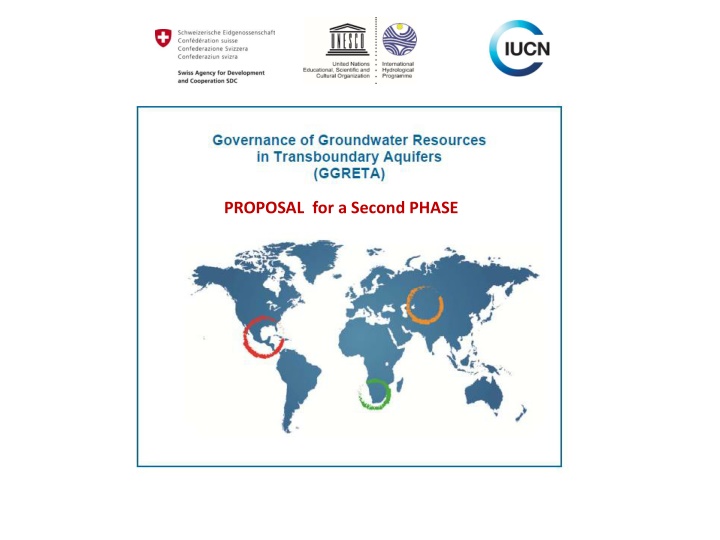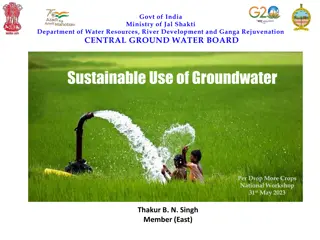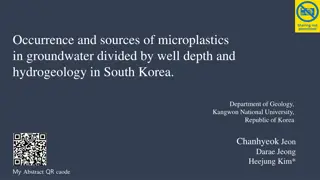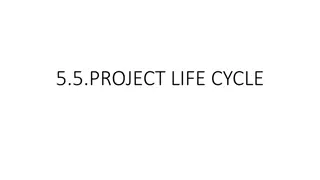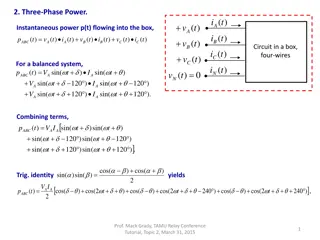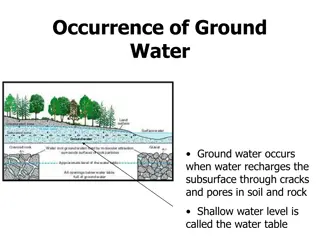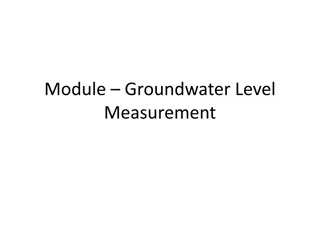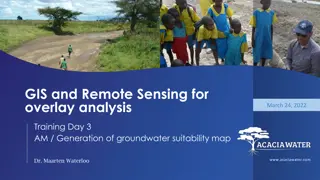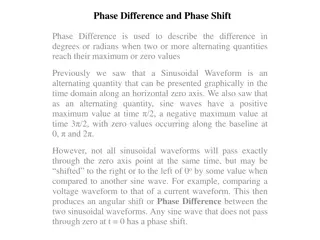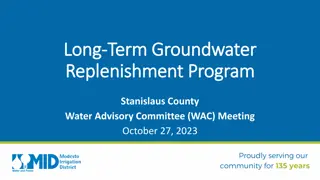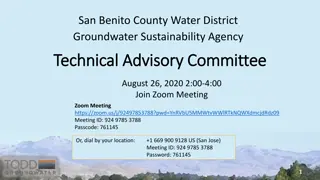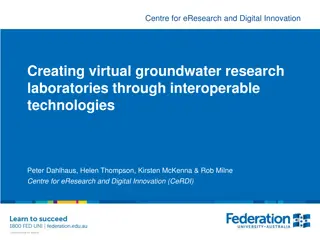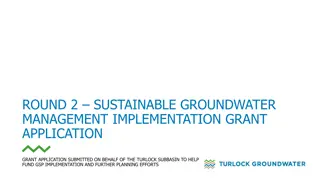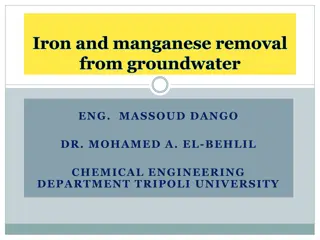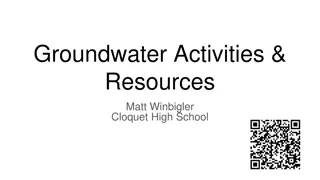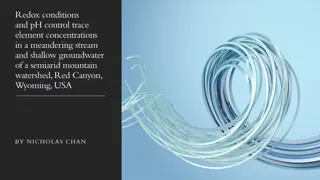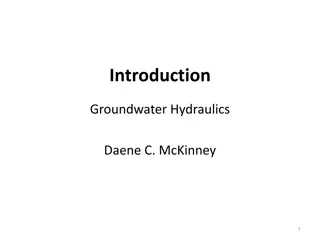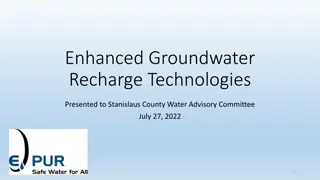Enhancing Groundwater Governance and Cooperation in Phase 2 of GGRETA Project
The proposed Phase 2 of the GGRETA Project aims to improve groundwater governance, develop gender-responsive water approaches, and enhance cooperation on water security in countries like El Salvador, Honduras, South Africa, and others. The objectives include improving resource knowledge, fostering cross-border dialogue, and building capacity in groundwater governance. Specific actions will be taken in each project aquifer to achieve these outcomes and set examples of cooperative management. The duration of Phase 2 is three years (2016-2018).
Download Presentation

Please find below an Image/Link to download the presentation.
The content on the website is provided AS IS for your information and personal use only. It may not be sold, licensed, or shared on other websites without obtaining consent from the author.If you encounter any issues during the download, it is possible that the publisher has removed the file from their server.
You are allowed to download the files provided on this website for personal or commercial use, subject to the condition that they are used lawfully. All files are the property of their respective owners.
The content on the website is provided AS IS for your information and personal use only. It may not be sold, licensed, or shared on other websites without obtaining consent from the author.
E N D
Presentation Transcript
PROPOSED GGRETA Phase 2 Objectives Duration of the Phase 2 of the GGRETA Project Duration: 3 years (2016, 2017, 2018) As following from the Phase 1, the overall goal for Phase 2 is: To enhance groundwater governance, develop water related gender- responsive approach, foster cooperation on water security. Setting up of Cooperation Mechanisms. COUNTRIES : El Salvador, Honduras, South Africa, Botswana, Namibia, Kazakhstan, Uzbekistan
PROPOSED GGRETA Phase 2 Objectives/Outcomes Outcome 1 Improved resource knowledge and monitoring based on recognition of the importance and vulnerability of transboundary groundwater resources. Outcome 2 - Enhanced cross-border dialogue and cooperation based on development of shared management tools, and recommendations for governance reforms focused on improving livelihoods, economic development, gender equality and environmental sustainability. Outcome 3 Improved capacity in groundwater governance, hydro-diplomacy and gender, and effective communication aiming at replication of project experiences and approaches.
In each project aquifer, specific actions will be implemented to reach the above outcomes as follows: -Central America: Improve groundwater governance at the domestic and regional levels and set a first example in the region of cooperative management of a transboundary aquifer. El Salvador -Honduras -Southern Africa: Promote regional coordination and harmonization on transboundary surface and groundwater management frameworks, and set a first example of cooperative management of transboundary aquifer in the SADC region, and strengthen domestic groundwater governance capacity. -Central Asia: Improve technical, scientific, legal and institutional, and hydro-diplomacy skills to facilitate transboundary waters cooperation and groundwater resources management.
